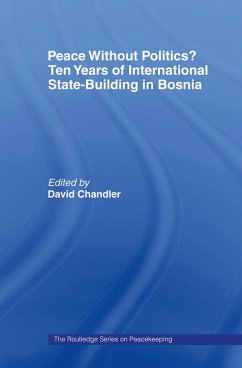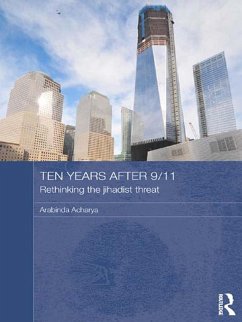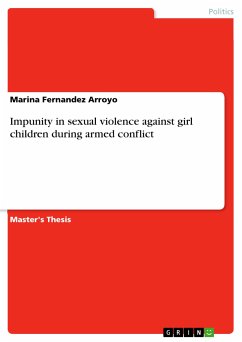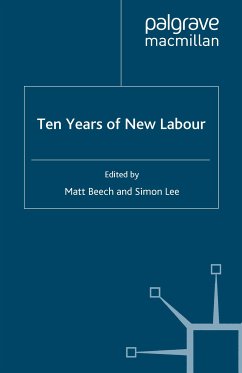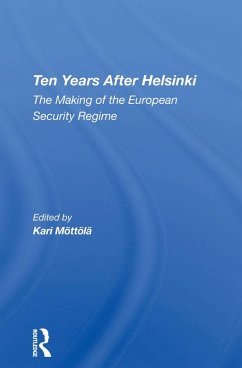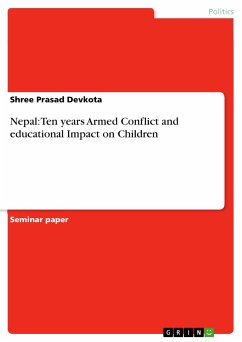
Nepal: Ten years Armed Conflict and educational Impact on Children (eBook, PDF)
Versandkostenfrei!
Sofort per Download lieferbar
Statt: 15,95 €**
13,99 €
inkl. MwSt. und vom Verlag festgesetzt.
**Preis der gedruckten Ausgabe (Broschiertes Buch)
Alle Infos zum eBook verschenkenWeitere Ausgaben:

PAYBACK Punkte
0 °P sammeln!
Seminar paper from the year 2014 in the subject Politics - Topic: Peace and Conflict, Security, Kathmandu University, language: English, abstract: The armed conflict started from the year since 1996 to 2006 against the Nepali state by the Maoist party in Nepal. No any Nepalese is free from the conflict and its effect, affected all aspects of livelihood and dominion (Pherali, 2006). The armed conflict in Nepal has left a legacy of some 15,000 dead (INSEC, 2007), and more than 1,300 missing (ICRC, April 2009). According to Shrestha, (2004) he has acknowledged that the armed conflict also destroy...
Seminar paper from the year 2014 in the subject Politics - Topic: Peace and Conflict, Security, Kathmandu University, language: English, abstract: The armed conflict started from the year since 1996 to 2006 against the Nepali state by the Maoist party in Nepal. No any Nepalese is free from the conflict and its effect, affected all aspects of livelihood and dominion (Pherali, 2006). The armed conflict in Nepal has left a legacy of some 15,000 dead (INSEC, 2007), and more than 1,300 missing (ICRC, April 2009). According to Shrestha, (2004) he has acknowledged that the armed conflict also destroyed human life and physical infrastructures as well. Similarly, Pherali (2011)states that children from rural people to the urban, being abduct from their home, and killing of innocent children and people, people being homeless, people being internally and externally displaced, the big number of children being orphan and homeless were the regular phenomena in that period. However, ten years armed conflict with the political aim has been the longest ever conflict witness in the past of Nepal. Ten years since then, the conflict has overcome almost 70 out of 75 districts, making it a problem of Nepal in many sectors like health, education etc .Therefore it can be said that Ten years conflict has a profound effect on children development negatively.
Dieser Download kann aus rechtlichen Gründen nur mit Rechnungsadresse in A, B, BG, CY, CZ, D, DK, EW, E, FIN, F, GR, HR, H, IRL, I, LT, L, LR, M, NL, PL, P, R, S, SLO, SK ausgeliefert werden.






